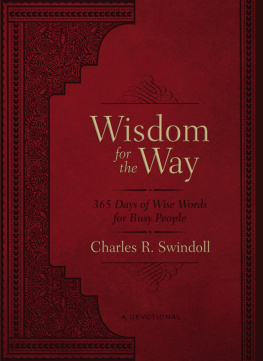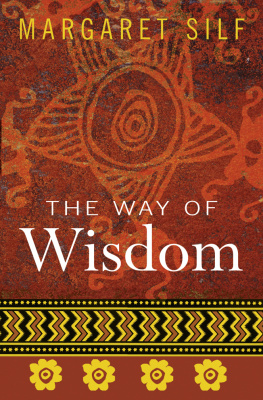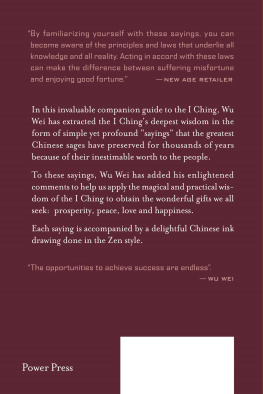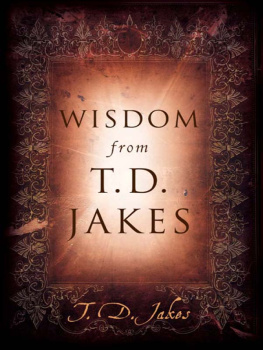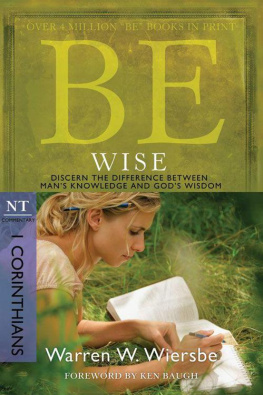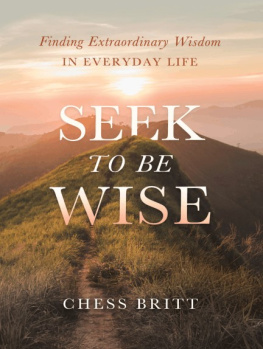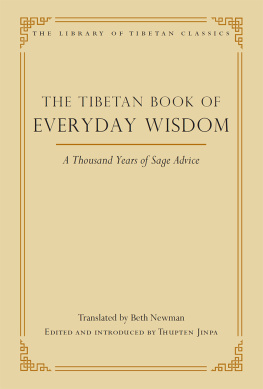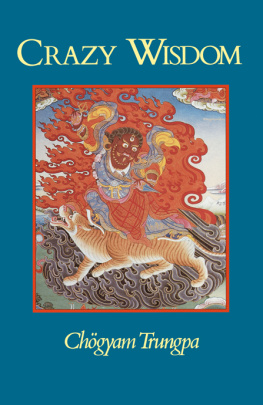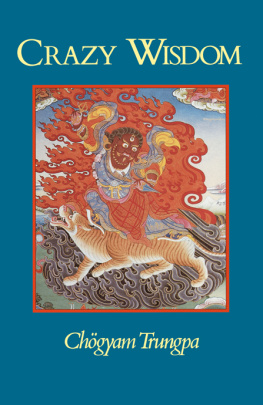Paradise Fever
This Tree Grows Out of Hell
THE BOOK OF ANSWERS
PTOLEMY TOMPKINS

First published in Great Britain in 2001
This electronic edition published in March 2012 by Bloomsbury Publishing Plc
First published in the USA by HarperCollins Publishers Inc with the title The Beaten Path 2001
Copyright 2001 Ptolemy Tompkins
All rights reserved. You may not copy, distribute, transmit, reproduce or otherwise make available this publication (or any part of it) in any form, or by any means (including without limitation electronic, digital, optical, mechanical, photocopying, printing, recording or otherwise), without the prior written permission of the publisher. Any person who does any unauthorised act in relation to this publication may be liable to criminal prosecution and civil claims for damages.
Bloomsbury Publishing Plc, 50 Bedford Square, London WC1B 3DB
A CIP catalogue record for this book is available from the British Library
eISBN: 978 1 4088 3147 2
Visit www.bloomsbury.com to find out more about our authors and their books You will find extracts, author interviews, author events and you can sign up for newsletters to be the first to hear about our latest releases and special offers
Thanks to the following parties for permission to include excerpts from copyrighted sources:
This Timeless Moment, by Laura Huxley, reprinted by permission of Farrar, Straus and Giroux LLC. Copyright 1968, renewed 1996 by Laura A. Huxley.
Black Elk Speaks, by John G. Neihardt, reprinted by permission of the University of Nebraska Press.
Zen in the Art of Archery, by Eugen Herrigel, reprinted by permission of Random House. 1999 by Random House.
The Vision Quest: Passing from Childhood to Adulthood, by Steven Foster and Meredith Little, from Betwixt & Between: Patterns of Masculine and Feminine Initiation, edited by Louise Carus Mahdi, Steven Foster, and Meredith Little, reprinted courtesy of Open Court Publishing Co.
The Bhagavad Gita or Song of God, by Swami Prabhavananda and Christopher Isherwood, reprinted by permission of the Vedanta Press.
Everyday Wisdom, by Dr. Wayne Dyer, reprinted by permission of Hay House.
All I Really Needed to Know I Learned in Kindergarten, by Robert Fulghum, reprinted by permission of Villard Books, a division of Random House, Inc.
Writing Down the Bones, by Natalie Goldberg, reprinted by permission of Shambhala Publications. 1986 by Natalie Goldberg.
Dont Sweat the Small Stuff and Its All Small Stuff, by Richard Carlson, Ph.D., reprinted by permission of Hyperion.
Tropic of Capricorn, by Henry Miller, reprinted by permission of Grove Atlantic.
The Art of Happiness: A Handbook for Living, by H. H. The Dalai Lama and Howard C. Cutler, reprinted by permission of Putnam Berkeley, a division of Penguin Putnam Inc. 1998 by H. H. The Dalai Lama and Howard C. Cutler.
The Artists Way, by Julia Cameron, reprinted by permission of Jeremy P. Tarcher, a division of Penguin Putnam Inc. 1992 by Julia Cameron.
The Consolation of Philosophy, by Boethius, translated by Richard Green, reprinted by permission of Prentice-Hall, Inc. 1962 by Richard Green.
The Celestine Prophecy, by James Redfield, reprinted by permission of Warner Books. 1994 by James Redfield.
Mere Christianity, by C. S. Lewis, reprinted by permission of C. S. Lewis Pte. Ltd. 1942, 1943, 1944, 1952 by C. S. Lewis Pte. Ltd.
Fragment of Heracleitus translated by Guy Davenport, from 7 Greeks, reprinted by permission of New Directions Publishing Group. 1995 by Guy Davenport.
Lifes Little Instruction Book, by H. Jackson Brown, Jr., reprinted by permission of Rutledge Hill Press, Nashville, TN.
Visions of the Prophet, by Kahlil Gibran. Reprinted by permission of Frog, Ltd., Berkeley, CA. 1997.
The Perennial Philosophy, by Aldous Huxley, published by Chatto & Windus. Reprinted by permission of the Random House Group Ltd.
For my mother,
Rebecca, and
Francie
Life is a festival only to the wise.
EMERSON
Contents
Chapter 1
The Tao of Life
Chapter 2
The Yoga of Action
Chapter 3
The Mystery of Relationship
Chapter 4
The Zen of Work
Chapter 5
The Path of the Artist
Chapter 6
The Vision Quest
Chapter 7
The Real Magician
Many books were indispensable in the making of this book about books. The pages devoted to Taoism owe much to Toshihiko Izutsus Sufism and Taoism: A Comparative Study of Key Philosophical Ideas. Further assistance in understanding the concept of Hun Tun came from N. J. Girardots Myth and Meaning in Early Taoism. Richard de Milles books on CastanedaCastanedas Journey and The Don Juan Paperswere central not only in helping me to grapple with the Carlos Castaneda enigma but also in providing many of the initial ideas and insights that got me started on the project. Monica Furlongs Zen Effects. The Life of Alan Watts gave me an invaluable full-color portrait of Watts the man to puzzle over. The pages on Aldous Huxley benefited much from David King Dunaways Huxley in Hollywood. The writings of Huston Smith, Jacob Needleman, Frithjof Schuon, E. F. Schumacher, and Richard Tarnas, though generally not alluded to in the book, were tutelary forces at one point or another.
So much for the books. As for people: Thanks first and foremost to Howard Yoon, Rachel Klayman, and Robin and Stuart Ray. Without them, no book. Thanks also to my editor at Morrow, Jennifer Brehl, my agent, Gail Ross, Josh Horwitz, David Reynolds, Matthew Hamilton, Jocasta Brownlee, Rosemary Davidson, Philip Zaleski, T C. Tompkins, Oliver Ray, Joyce Wong, Jack Weiner, Jerree Tompkins, Greg Mirhej, Karl Greenfeld, Nicky Vreeland, Maria Teresa Train, Marvin Barrett, Maura Maguire, Susan Heckler, Ralph White, Cathy Mars, Leah Zanoni, and Paul and Zack, the book merchants of Washington Square Park, who supplied me with fresh copies of many a long-lost Life Manual. Last but not least, thanks to my wife, Rebecca, for putting up with a husband more neurotic than wise, and more troublesome than tranquil.
Of making many books there is no end.
ECCLESIASTES
I have a funny relationship with wisdom. This is, I believe, because I have been born into a funny moment in the history of the stuffa time when there is both more and less of it available than ever before, and when getting wisdom for oneself is both an unprecedentedly promising and an unprecedentedly hopeless project.
Why is so much wisdom available today? Because it is now, to an extent that it has never been before, a productsomething you can buy, sell, and carry around in your back pocket; something that can be taught at seminars, concentrated into videocassettes, and broadcast on-line in daily installments. If you want to know why things are the way they are, and if you like the idea of hearing this news from a single, dog-eared, trustworthy volume, such volumes are available in a quantity and variety that no other generation at any other time or place in history has ever known.
Among the great majority of cultures that came before ours, the issue of where to go for answers to lifes essential dilemmas never came up. No young member of a primitive society, perched on the edge of adulthood and wondering about the meaning of life and his or her place in it, ever had to choose between Iranian Sufism, Japanese Zen, Amerindian shamanism, and Tibetan Buddhism as a source of insight into these questions. The culture of such a person would typically have been structured around a single mythic system, and that system would have informed, to a greater or lesser degree, every aspect of his or her existence. If this individual was inclined to ask questions about lifes ultimate meaning, all the answers would have been in the myths. The idea of shopping around for a better set of them would simply not have arisen.


